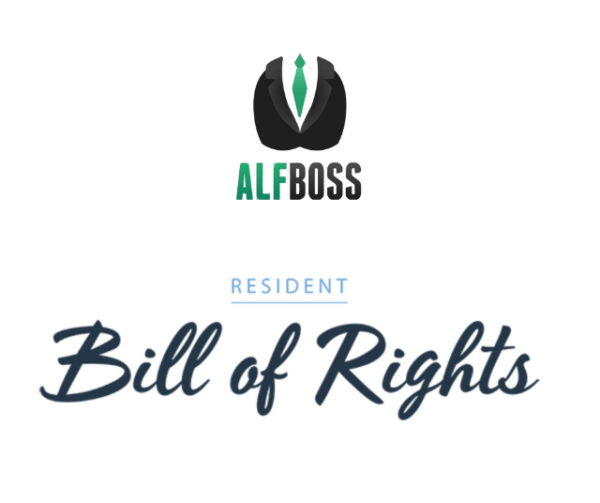
When a person chooses to move into an Assisted Living Facility in the state of Virginia they are entitled to certain rights as a resident of your facility. These rights are extremely important and designed to protect the dignity of our seniors and allow them to continue to be productive and respected citizens of the state. Check out the following regulation on residents’ rights provided by DOSS:
22VAC40-73-550. Resident rights.
- The resident shall be encouraged and informed of appropriate means as necessary to exercise his rights as a resident and a citizen throughout the period of his stay at the facility.
- The resident has the right to voice or file grievances, or both, with the facility and to make recommendations for changes in the policies and services of the facility. The residents shall be protected by the licensee or administrator, or both, from any form of coercion, discrimination, threats, or reprisal for having voiced or filed such grievances.
- Any resident of an assisted living facility has the rights and responsibilities as provided in § 63.2-1808 of the Code of Virginia and this chapter.
- The operator or administrator of an assisted living facility shall establish written policies and procedures for implementing § 63.2-1808 of the Code of Virginia.
- The facility shall make its policies and procedures for implementing § 63.2-1808 of the Code of Virginia available and accessible to residents, relatives, agencies, and the general public.
- The rights and responsibilities of residents shall be printed in at least 14-point type and posted conspicuously in a public place in all assisted living facilities. The facility shall also post the name and telephone number of the appropriate regional licensing supervisor of the department, the Adult Protective Services’ toll-free telephone number, the toll-free telephone number of the Virginia Long-Term Care Ombudsman Program, and any substate (i.e., local) ombudsman program serving the area, and the toll-free telephone number of the disAbility Law Center of Virginia.
- The rights and responsibilities of residents in assisted living facilities shall be reviewed annually with each resident or his legal representative or responsible individual as stipulated in subsection H of this section and each staff person. Evidence of this review shall be the resident’s, his legal representative’s or responsible individual’s, or staff person’s written acknowledgment of having been so informed, which shall include the date of the review and shall be filed in the resident’s or staff person’s record.
- If a resident is unable to fully understand and exercise the rights and responsibilities contained in § 63.2-1808 of the Code of Virginia and does not have a legal representative, the facility shall require that a responsible individual, of the resident’s choice when possible, designated in writing in the resident’s record annually be made aware of each item in § 63.2-1808 and the decisions that affect the resident or relate to specific items in § 63.2- 1808. The responsible individual shall not be the facility licensee, administrator, or staff person or family members of the licensee, administrator, or staff person.
- A resident shall be assumed capable of understanding and exercising these rights unless a physician determines otherwise and documents the reasons for such determination in the resident’s record.
- The facility shall seek a determination and reasons for the determination from a resident’s physician regarding the resident’s capability to understand and exercise these rights when there is reason to believe that the resident may not be capable of such.
Top Takeaways:
- The rights and responsibilities of residents shall be printed in at least 14-point type and posted conspicuously in a public place in all assisted living facilities. The facility shall also post the name and telephone number of the appropriate regional licensing supervisor of the department, the Adult Protective Services’ toll-free telephone number, the toll-free telephone number of the Virginia Long-Term Care Ombudsman Program, and any substate (i.e., local) ombudsman program serving the area, and the toll-free telephone number of the disAbility Law Center of Virginia
Having the resident bill of rights posted somewhere easily accessible to residents, visitors and DOSS is an area where many facilities are tagged for being out of compliance. Good practice would be to have the bill of rights hung in the lobby in clear view of everyone who needs to see it.
Pro Tip:
- Develop a committee of residents, such as a resident council, to assist with the upholding of resident’s rights. Use this council to get a pulse of the community and stay in touch with what your residents are going through.
- Work with the DOSS and the local ombudsman closely to promote the standards of resident rights within your community.